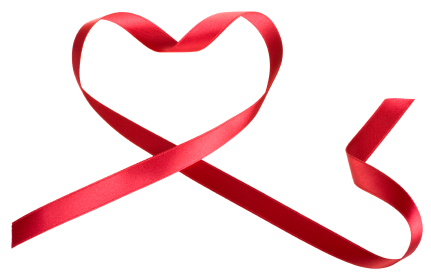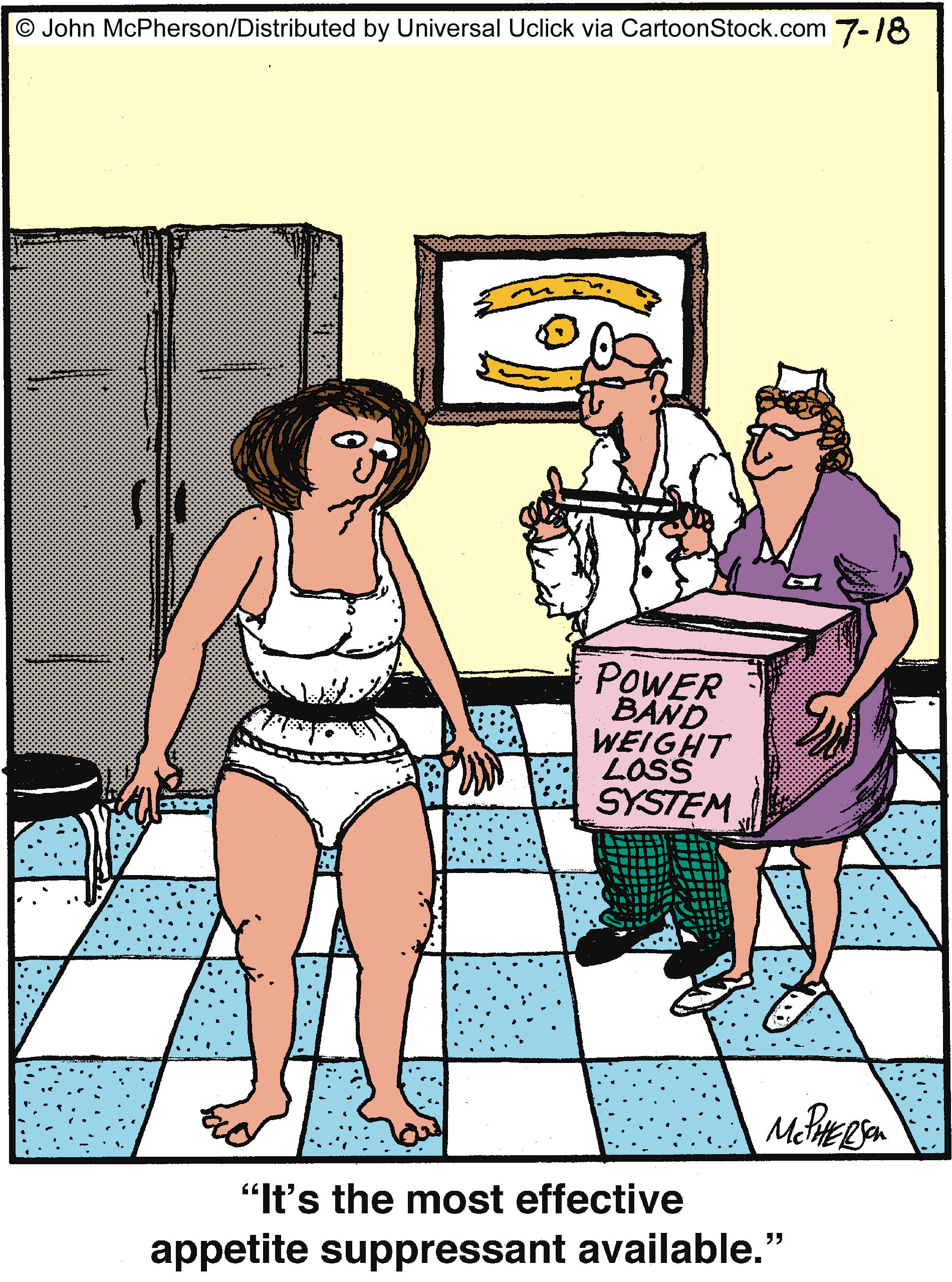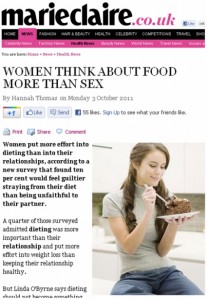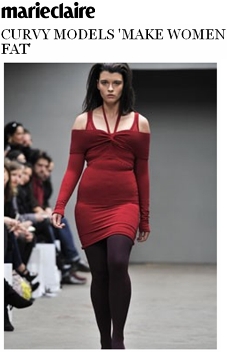The gift of a lifetime…
I’ve been on a bit of a personal rage lately – a rage about weight gain and the ‘pause.
No time like the present to give yourselves the gift of a lifetime: aim for a healthy weight before you hit menopause.
We’ve discussed it time and again on Flashfree; weight gain and menopause go hand in hand like a horse and carriage. And with that weight gains comes an increased risk for developing heart disease, diabetes and the dreaded metabolic syndrome. However, last year, researchers from the University of Ottawa reported that entering full menopause with a healthy body mass index (BMI) actually confers protection.
In the study (which appeared online in the journal Menopause), researchers evaluated and observed 102 premenopausal women for body composition and changes in their cardiovascular health profiles. The women, all of whom were between 47 and 55 years of age, did not smoke, had a BMI between 20 and 29 and had had a stable weight for at least 6 months before the study started, were followed for five years. Each year, the researchers gauged if they had entered menopause, measured body composition (i.e. total fat mass, trunk fat mass and total fat free mass), waist size, the degree of abdominal fat and took blood to examine glucose, insulin and blood fat levels.
The study’s lead researcher, Dr. Denis Prud-homme explains that by simply observing the women and not imposing any structured interventions (e.g. diet or exercise) they were able to assess changes within a more naturalistic environment. At the study’s end, they discovered that despite significant increases in fat mass, visceral abdominal fat, blood glucose and cholesterol levels, most of which were the natural result of hormone fluctuations and aging, the women did not appear to have any declines in their heart or metabolic profiles that would indicate an increased risk for disease. Dr. Prud-homme says that a possible explanation might be that “even if the area of visceral fat is increased, it is still under the critical threshold associated with cardio-metabolic deterioration.” In other words, by maintaing a healthy lifestyle and BMI premenopausally, these women were able to change their risk equations once they fully entered menopause.
The bottom line is that the present you give yourself now will last long into your later years. Exercise. Eat right. And pay attention to your health.
No time like the present. For a present. Give yourself one.
Read MoreWednesday Bubble: Goal Weight: Charlize Theron. Guest post by Nina Perez
Have you heard of VaginaCon? If not, you need to click your way over to the site, which as co-founded by the amazing Nina Perez. VaginaCon is a safe place for women to connect with one another and build relationships. Sort of like Flashfree but on a broader scale. But I digress because this post is really about Nina. I was fortunate to meet Nina via the Interwebz when were were members of the same Facebook group. She is an astonishingly creative, intelligent go-getter who is redefining the meaning of ‘hawt.’ More importantly, however, is that last week, Nina posted a raw and honest piece about her weight loss journey and self-acceptance. Frankly, the post resonated so deeply that I asked if I could repost it here.
The next time you start criticizing yourself about your weight, beating yourself up about falling short of impossible goals or creating a standard that is a bit out of the realm of possibilities, step back. Carve those goals into smaller pieces. And take a look back in the mirror. Bet you’ll see what others are seeing; the beauty that is you.
Yeah, sounds cheesy but Nina has shared a journey that demonstrates that it’s really true. And by the way Nina? You are one hot gorgeous woman inside and out.
Show some love, eh?
When I started my weight loss journey on January 2, 2012, I was 238lbs. The healthy weight for my height falls between 143lbs and 179lbs.
Even if I were aiming for the high end, 179lbs seemed far, far away and losing 59lbs seemed like something that would take a long ass time. I gave myself a year. But still, a year? Holy hell.
Like most people fed up with being overweight, I wanted the pounds to melt away. I knew almost immediately that I’d have to set mini-goals to keep my head in the game. Luckily, Weight Watchers sets your first two goals for you: First, you strive to lose 5% of your starting weight. For me, that was 11.5lbs. I hit that by January 25th. Next, it was 10%.
But to keep it interesting, and to keep myself motivated, I gave myself goals that had nothing to do with the number on the scale along with a few that did. For instance:
- I wanted to be 214lbs by March 23rd when I had the first VaginaCon at my house. (Did it.)
- I wanted to be less than 200lbs by my birthday, August 18th. (Done.)
- I wanted to fit into a size 16 jeans. (Been there, did that.)
- I wanted to fit into a size 14 jeans. (In them now.)
- I wanted to wear my sexy shoes again without feeling like I was asking way too much of my impossibly high heels – they have their limits, too.
- I wanted smaller panties.
- I wanted to stop wearing XL t-shirts.
There was one mini-goal I didn’t give much thought to, until I hit it, and it was the first one I achieved. One day, after losing about 8-11lbs, I was walking down the stairs wearing nothing but a short nightgown. As I hit the first floor, I realized something was different. To test that it wasn’t a fluke, I began to briskly pace in my kitchen. My husband came downstairs and asked, “What the hell are you doing?”
“My thighs aren’t rubbing together!”
I was thrilled.
But what about my overall goal? What should I shoot for between 143-179? I’m not very good at looking at someone and judging their height and weight. I couldn’t tell you what 175lbs looks like on a person who is 6-feet-tall or someone who’s 5’5″. In that picture above, I wouldn’t be able to guess that was 204lbs.
After some thought, I decided that 180lbs would be my look-and-see weight. I’ll get to 180 and then look and see if I like it.
How do I look in my jeans? Can I wear a bathing suit again without wanting to cry in shame? For as much as this is about being healthy and making sure I’m around to see my kids grow up, it’s also about, for me, how I look. I don’t want fat hanging over the waistline of my jeans, and I like my ass to look firm in them. I had a vague memory of what 180 looked like on me (see above), but more importantly, I know how I want to look and feel in my clothes.
I’m always looking at other women who are my height and (in my opinion) in great shape, wondering how much they weigh. While I want to be thinner, I don’t want to lose curves. So, that’s why when Donny and I went to see Prometheus – a horrible movie despite starring two of my Freebie Five: Michael Fassbender and Idris Elba – back in June, and I saw Charlize Theron, I whispered to my husband, “New goal weight: Charlize Theron!”
I went home and did a Google search: How much does Charlize Theron weigh? Granted, I’m not sure this information is entirely accurate, but word on the internet streets is that she is my height and weighs 135lbs.
Um, no.
I am never going to be 135lbs again. That’s just not happening. That’s below my supposed healthy weight range! If I were younger, and perhaps easily swayed by what celebrities do, I might try to hit 135lbs, but thankfully I am neither of those things. While I still feel like I would love to look like this in my clothes:
… I’m just gonna have to rock that at about 170′ish…and with a little more curve.
What is your ultimate weight goal? Do you have mini-goals that are not determined by the scale? What about weight loss milestones like an upcoming party or other special event?
About Nina Perez…
Nina Perez is the author of The Twin Prophecies: Rebirth, Blog It Out, B*tch, and The Twin Prophecies: Origins (Summer 2012). She is co-founder of VaginaCon.com, a contributor to Milk & Ink: A Mosaic of Motherhood, Choose or Die, Elephant Words and one of the merry band of independent authors rocking it hard at the Literary Underground. Her short story, Amongst the Tulips, was published in Foliate Oaks online literary magazine and their editors voted it one of the best short stories of 2009. She also runs the book review site for independent authors, Nina’s Nightstand.
Read More
No time like a present: heart disease, metabolic syndrome and weight
Want to give yourself the gift of a lifetime? Aim for a healthy weight before you hit menopause.
We’ve discussed it time and again on Flashfree; weight gain and menopause go hand in hand like a horse and carriage. And with that weight gains comes an increased risk for developing heart disease, diabetes and the dreaded metabolic syndrome. However, researchers from the University of Ottawa are reporting that entering full menopause with a healthy body mass index (BMI) actually confers protection.
In the study (which appeared online a few weeks ago in the journal Menopause), researchers evaluated and observed 102 premenopausal women for body composition and changes in their cardiovascular health profiles. The women, all of whom were between 47 and 55 years of age, did not smoke, had a BMI between 20 and 29 and had had a stable weight for at least 6 months before the study started, were followed for five years. Each year, the researchers gauged if they had entered menopause, measured body composition (i.e. total fat mass, trunk fat mass and total fat free mass), waist size, the degree of abdominal fat and took blood to examine glucose, insulin and blood fat levels.
The study’s lead researcher, Dr. Denis Prud-homme explains that by simply observing the women and not imposing any structured interventions (e.g. diet or exercise) they were able to assess changes within a more naturalistic environment. At the study’s end, they discovered that despite significant increases in fat mass, visceral abdominal fat, blood glucose and cholesterol levels, most of which were the natural result of hormone fluctuations and aging, the women did not appear to have any declines in their heart or metabolic profiles that would indicate an increased risk for disease. Dr. Prud-homme says that a possible explanation might be that “even if the area of visceral fat is increased, it is still under the critical threshold associated with cardio-metabolic deterioration.” In other words, by maintaing a healthy lifestyle and BMI premenopausally, these women were able to change their risk equations once they fully entered menopause.
The bottom line is that the present you give yourself now will last long into your later years. Exercise. Eat right. And pay attention to your health.
No time like the present. For a present. Give yourself one.
Read MoreStress eating? Spare Tummy Tire? Try a little mindfulness…
Mindfulness. It keeps popping up in different areas of health. Last time I posted about mindfulness training, it was within the context of hot flashes and how training your mind to reduce stress can influence how hot flashes are experienced. But what about stress eating?
Many women (and men) turn to emotional eating when they are stressed. And unfortunately, when it comes to weight gain, many of the most serious health affects of excess weight tend to be linked to that roll around the tummy area. In fact, abdominal (or visceral) obesity produces inflammation in the body that can increase the risk for diabetes and heart disease. In women in particular, who may be prone to weight gain in their abdominal area due in part to hormone fluctuations, it’s a double-edged sword. Add the fact that chronic stress increases levels of cortisol, which in turn, mobilizes the migration of fat cells to the midsection, and well, it’s a disaster in the waiting.
As I have written previously, cortisol is a hormone that is secreted by the adrenal glands. Its primary role in the body is to regulate energy (by producing blood sugar or metabolizing carbohydrates, protein and fats) and mobilize it to areas where is it most needed so, cortisol levels tend to peak in the early morning and then gradually decline throughout the day. Research has shown, however, that women have higher cortisol levels than men, and that certain women –especially those with greater amounts of abdominal fat — may be reacting to a large disruption in the release of cortisol that causes a greater than normal difference between morning and evening levels of the hormone. This disruption is believed to be related, at least in part, to exposure to prolonged physical and mental stress. This psychological component is huge, because it tends to trigger the desire to consumption of food that is high in fat and/or sugar, which also tends to promote abdominal weight gain.
How do you break the cycle?
Researchers are now saying that mindfulness may be an important strategy to beat the bulge and the stress. In fact, whey they looked at the effects of a program that focused on interrupting habitual thoughts, emotions and behaviors, that is exactly what they found.
In this small exercise, 24 overweight and obese women not yet in menopause learned to use guided meditation as a way to introduce mindful eating (i.e. paying attention to their physical sensations of hunger, stomach fullness, taste satisfaction and food cravings). They were also taught to be more aware of emotional eating triggers and negative emotions as well as to be more loving and accepting of both themselves. Over nine weeks, they were able to share their challenges, concerns and experiences and then learned new meditations to overcome what they felt were roadblocks in their progress. During the same four week period, 23 women were placed on a waiting list for comparison purposes.
Regularly engaging in mindfulness training set these women off on the right foot upon awakening and in fact, lowered their cortisol levels in the early am hours. What’s more, women who reported having the greatest improvements in their response to stress and emotional eating triggers tended to have the largest reductions in abdominal fat. Additionally, reductions in waking cortisol levels were related to reductions in abdominal fat as well.
Mind you, the women in this particular study were premenopausal, namely because the researchers say that hormonal declines naturally lead to deposits of fat in the midsection. However, if psychological stress compounds weight gain in this area as much as it affects overall wellbeing and menopausal symptoms, it might be worthwhile considering if incorporating ‘a little mindfulness’ into one’s life could help shift fat away from the abdomen as well. It’s an interesting idea and definitely worth exploring…especially as we move into what many regard to be the most stressful and eating laden season of the year: the holidays!
Try a little mindfulness. Not only can it benefit your brain but your tummy might reap the benefits as well.
Read MoreWednesday Bubble: Should Fatties Get a Room…and Other ‘Fine’ Assaults on Women… Guest Post by Dr. Brian Hughes
My friend Dr. Brian Hughes is at it again. “At what,” you ask? At identifying media assaults on women, on aging and on identities. You may recall that I ran Brian’s piece on ageism back in July of this year. And I am honored to run another post. Once again, I hope that you’ll show Brian some love and spread the word, not only about the post but also his work on The Science Bit Blog. Many thanks Brian!
I don’t know much about Marie Claire, but it appears to be some sort of magazine/website for people who hate women. At least, that’s the conclusion I drew from reading this story in their UK edition’s Health News section: “Women Think About Food More Than Sex“. In genre terms, this is something of a high concept piece, one of those articles that sums up everything it has to offer within the phrasing of its title alone (a bit like “Snakes on a Plane“).
So what did they find? Firstly, a full 25% of women ”admitted” that dieting was more important to them than their intimate relationships. In fact, get this:
…ten per cent would feel guiltier straying from their diet than being unfaithful to their partner.
That’s right. Marital (or relationship) infidelity — the stuff of epic romantic drama at least since the mythology of the ancient Greeks — is actually not that significant after all. What matters more is diet adherence. So, while Hester Prynne appeared somewhat perturbed throughout The Scarlet Letter, at least all she had to deal with was the stigma of her sexual indiscretion. Imagine if the townsfolk found out about that extra chocolate biscuit she used to scoff during coffee breaks…
Here are some more findings:
The most common reason for women in the UK to start a diet is to get the perfect beach body–while one in seven say cruel taunts are the reason they reign [sic] in their eating.
So women become self-conscious about their bodies due to beach paranoia andtaunting, eh? Well I guess that has nothing at all to do with articles appearing in magazines. Magazines like Marie Claire, for example…
How about these delightful pieces: “Are Leggings Making You Fat?“; “Could Your Fridge Be Making You Fat?“; “Curvy Models ‘Make Women Fat’“; “Diets That Make You Fat“; “Healthy Foods That Make You Fat“; “Is Your Air Conditioner Making You Fat?“; “Can A Common Virus Really Make You Fat?“; “3 Surprising Things That Make You Fat” (stilettos, your partner’s education, and boredom, apparently); “3 Fats That Make You Skinny” (ooh-er, now I’m confused); “10 Best Celebrity Beach Bodies“; ”From Flab To Fab: Your Holiday Survival Guide“; and “Get A Beach Body Fast“.
Uh huh. No grounds for paranoia or for beach-body neurosis there at all.
And as for cruel taunts, how about this memorable Marie Claire column called ”Should ‘Fatties’ Get A Room?“ Here’s an excerpt:
So anyway yes, I think I’d be grossed out if I had to watch two characters with rolls and rolls of fat kissing each other…because I’d be grossed out if I had to watch them doing anything. To be brutally honest, even in real life, I find it aesthetically displeasing to watch a very, very fat person simply walk across a room…
I think I understand why “one in seven (UK) women” modify their eating due to “cruel taunts“. They are obviously Marie Claire readers.
Still, while all that looks pretty terrible and offensive, at least Marie Claire quote a nutritionist to advise readers that “Dieting should never become an obsession“. So that’s alright then. Hands washed.
As it happens, “women think about food more than sex” is a well phrased, nicely falsifiable hypothesis. Either it is true or it is not. All that we need is data from a sample of women that is both large and statistically representative of the general population, regarding (a) the extent to which they think about food and (b) the extent to which they think about sex. Then we can do a simple statistical test tocompare these two values in order to determine which subject, on average, is thought about the most.
But of course, that’s not what we get here. Instead we have a pretty standard population-based survey study, with minimalist description of methodological details. Marie Claire report the findings as “Health News“, presenting statistical factoids that imply a basis in a comprehensive dataset but avoiding anything as troublesome as even a sample size.
In fact, according to the UK Press Association, the study examined responses from over 1,200 women, which sounds comprehensive enough. However, we are not told what questions were asked or what other findings the researchers discovered. This is because the study is not actually a piece of formal science. Rather, it’s a bog standard market research survey conducted by a private company who have a commercially vested interest in reporting particular results.
The survey is brought to us by Atkins, the people who make a profit every time a woman buys one of their dieting products. They seem to churn out lots of this type of research (see here, here, and here), all of which goes directly to newswires and yields findings that encourage women to turn dieting into an obsession. And thatnutritionist that Marie Claire get to warn women not to turn dieting into an obsession? Yeah, well she works for Atkins. In fact, she’s their “Chief Nutritionist“.
 Guess which one of these corporate value statements is my favourite
Guess which one of these corporate value statements is my favouriteWe’ve been here before. Pseudoscience in the service of corporate greed is depressing enough on its own. But it is truly amazing how women’s magazines and media outlets become complicit in this baloney. Instead of providing a service that is of actual benefit to women, these magazines end up assisting a corporate marketing strategy designed to maximize profits by generating and exploiting reader confusion.
Hey, for all I know (and I don’t), women might well think more about food than about sex. But let’s just remember this. Women’s magazines think more about their profitable relationships with corporate advertisers than about the edification — or mental health — of their readers.
Yeah! Go women!
About the author…
Dr Brian Hughes is a lecturer in Psychology at the National University of Ireland, Galway and author of Conceptual and Historical Issues in Psychology (Prentice Hall, 2011). When he is not writing or lecturing, you can find him lending his views on Twitter.
Read More














